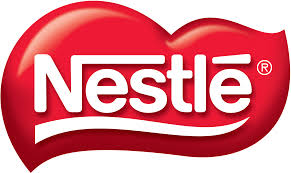
Days after U.S. activist shareholder Third Point LLC began a campaign to boost performance at the company, Nestle plans to buy back as much as 20 billion Swiss francs ($20.8 billion) worth of shares over three years, it said.
When it started pushing for Nestle to more aggressively boost performance and buy back shares, a $3.5 billion stake in the company was declared on Sunday by the New York-based hedge fund, controlled by billionaire investor Daniel Loeb.
Its announcement was the result of a review of its priorities that had begun in early 2017, said Nestle, maker of Gerber baby food and Perrier water. Third Point declined to comment on the announcement even as Nestle did not mention Third Point in its statement.
He understood from meetings with shareholders they wanted to see "meaningful steps towards improved combinations of growth rates and margins", said Nestle's Chief Executive Mark Schneider, who took over at the start of the year, while addressing at the company's first-quarter results presentation in April.
Nestle would have submitted the plan before Third Point made its position public late on Sunday because of those comments and the fact that buyback plans take time to get regulatory approval before being announced.
Nestle had initially planned to release this at its investor day in September and there was no big surprise in the company's statement, said Kepler Cheuvreux analyst Jon Cox.
However, when Nestle crafted the final buyback plan, which will start on July 4, whether feedback that Loeb might have given in a meeting earlier this month was taken into account was not yet clear.
The announcement is not seen as a direct result of Third Point by Vontobel analyst Jean-Philippe Bertschy.
"We rather see today's announcement as a thorough strategic review triggered by CEO Mark Schneider, approved by the board," he said. And following 25 billion Swiss francs in 2007, this was Nestle's second-biggest buyback, he noted. Since 2005, 47 billion francs worth of shares have been bought back by the company.
"In the context of low interest rates and strong cash flow generation, share buybacks offer a viable option to create shareholder value," the company said.
It said that Nestle can consider acquisitions before the buybacks because that will probably occur mostly in 2019 and 2020, and the volume of monthly share buybacks will depend on market conditions as well.
By 2020, its level of debt is expected to be increased about 1.5 times earnings before interest, taxes, depreciation and amortization (EBITDA) by the company. That would be up from about 0.8 times last year.
On hopes the push by Third Point would speed up changes under Schneider, who joined the company last year and took over as CEO in January, Nestle shares had jumped 4 percent on Monday, adding some $10 billion in market value before falling 1.6 percent on Tuesday.
In addition to growth opportunities in consumer healthcare, high-growth food and beverage categories including coffee, petcare, infant nutrition and bottled water, would be the areas that Nestle would focus any capital spending, the company said on Tuesday.
(Source:www.reuters.com)
When it started pushing for Nestle to more aggressively boost performance and buy back shares, a $3.5 billion stake in the company was declared on Sunday by the New York-based hedge fund, controlled by billionaire investor Daniel Loeb.
Its announcement was the result of a review of its priorities that had begun in early 2017, said Nestle, maker of Gerber baby food and Perrier water. Third Point declined to comment on the announcement even as Nestle did not mention Third Point in its statement.
He understood from meetings with shareholders they wanted to see "meaningful steps towards improved combinations of growth rates and margins", said Nestle's Chief Executive Mark Schneider, who took over at the start of the year, while addressing at the company's first-quarter results presentation in April.
Nestle would have submitted the plan before Third Point made its position public late on Sunday because of those comments and the fact that buyback plans take time to get regulatory approval before being announced.
Nestle had initially planned to release this at its investor day in September and there was no big surprise in the company's statement, said Kepler Cheuvreux analyst Jon Cox.
However, when Nestle crafted the final buyback plan, which will start on July 4, whether feedback that Loeb might have given in a meeting earlier this month was taken into account was not yet clear.
The announcement is not seen as a direct result of Third Point by Vontobel analyst Jean-Philippe Bertschy.
"We rather see today's announcement as a thorough strategic review triggered by CEO Mark Schneider, approved by the board," he said. And following 25 billion Swiss francs in 2007, this was Nestle's second-biggest buyback, he noted. Since 2005, 47 billion francs worth of shares have been bought back by the company.
"In the context of low interest rates and strong cash flow generation, share buybacks offer a viable option to create shareholder value," the company said.
It said that Nestle can consider acquisitions before the buybacks because that will probably occur mostly in 2019 and 2020, and the volume of monthly share buybacks will depend on market conditions as well.
By 2020, its level of debt is expected to be increased about 1.5 times earnings before interest, taxes, depreciation and amortization (EBITDA) by the company. That would be up from about 0.8 times last year.
On hopes the push by Third Point would speed up changes under Schneider, who joined the company last year and took over as CEO in January, Nestle shares had jumped 4 percent on Monday, adding some $10 billion in market value before falling 1.6 percent on Tuesday.
In addition to growth opportunities in consumer healthcare, high-growth food and beverage categories including coffee, petcare, infant nutrition and bottled water, would be the areas that Nestle would focus any capital spending, the company said on Tuesday.
(Source:www.reuters.com)














